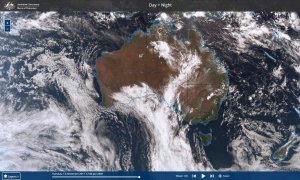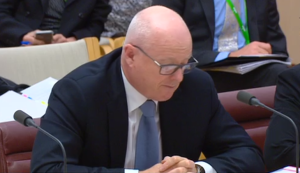
 A Bureau of Meteorology plan to centralise all weather forecasting in Melbourne and Brisbane within two years has ignited fears that regional communities will bear the brunt of job cuts and a loss of local expertise.
A Bureau of Meteorology plan to centralise all weather forecasting in Melbourne and Brisbane within two years has ignited fears that regional communities will bear the brunt of job cuts and a loss of local expertise.
The radical plan is the brainchild of Bureau Chief Executive Dr Andrew Johnson, the former head of CSIRO’s now-defunct Sustainable Ecosystems division, whose tenure coincided with significant cuts to regional science.
Shock announcement
Dr Johnson sprung the plan on the more than 200 forecasters in an email sent to all staff in late August.
The memo says locally based teams in each state and territory will be reduced to “Customer Focussed Delivery Teams”, with all forecast production and specialist technical roles moved to Melbourne and Brisbane.
“The announcement came as a total bolt from the blue for Weather Bureau forecasters. They are absolutely dismayed at the impact this is going to have on the critical forecasting services they provide to communities right around Australia, and of course the potential personal cost if there are job cuts or forced staff relocations,” CPSU Deputy Secretary Beth Vincent-Pietsch said.
Widespread criticism
 News of the proposed cuts was met with near universal criticism. WA Pastoralists and Graziers Association president Tony Seabrook said he had serious concerns about the proposal.
News of the proposed cuts was met with near universal criticism. WA Pastoralists and Graziers Association president Tony Seabrook said he had serious concerns about the proposal.
“There are a few groups of people in the community that absolutely depend on forecast, and aviation is one, maritime is another,” he said.
“But farmers make day-to-day decisions based on the forecasting that we get, and they can be very significant decisions to do with livestock welfare.”
“Claims of cost-cutting and job losses are simply untrue and there are no plans to remove the bureau’s local presence from any state or territory,” the Bureau of Meteorology said in a statement.
Bureau denials
 Appearing before Senate Estimates, Dr Johnson countered speculation that automating services would result in job losses for local meteorologists.
Appearing before Senate Estimates, Dr Johnson countered speculation that automating services would result in job losses for local meteorologists.
“The notion that the bureau is cutting jobs, the bureau is cutting costs, the bureau is getting out of the state, they are completely false,” he said. “We will have local meteorologists in all our states and territories.”
However similar assurances to protect regional jobs – dating back to Dr Johnson’s leadership of CSIRO Sustainable Ecosystems – proved inaccurate with the division leadership later presiding over a series of significant cuts to regional research programs during his eight-year tenure.
Dr Johnson also famously justified the 2012 redundancy of CSIRO’s award-winning oceanographer and climate scientist Trevor McDougall by claiming the organisation had been unable “to align his interests with our strategic direction.”